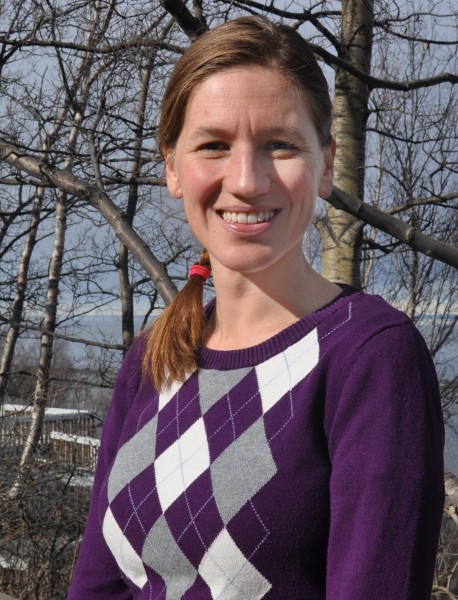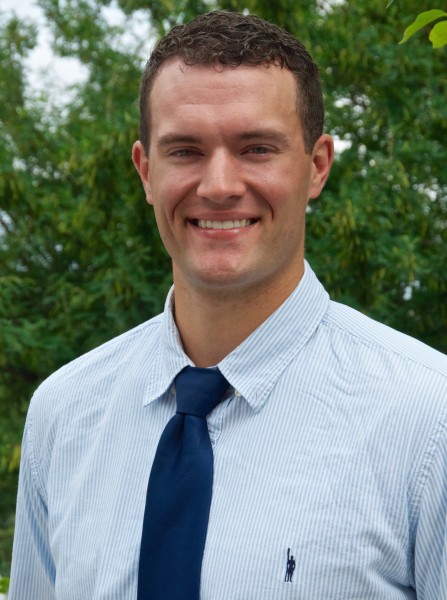First Alaska Sea Grant state fellows begin jobs
August 20, 2015
Deborah Mercy
907-274-9698
Alaska Sea Grant has launched a new state fellowship program providing a yearlong
professional experience in marine policy to two young Alaskans.

Marysia Szymkowiak, of Gustavus, just completed her doctoral degree in marine policy and fisheries management at the University of Delaware. She will begin work at the end of August with the National Oceanic and Atmospheric Administration Sustainable Fisheries Division in Juneau.
Szymkowiak’s dissertation was on the halibut individual fishing quota program, which will fit well with her new job. “It directly relates to what I did for my doctorate,” said Szymkowiak. She will be participating in a review of the halibut and sablefish IFQ programs. “It’s the first comprehensive review they’ve done of these programs,” she said.

Matt Robinson, born and raised in Fairbanks, just completed his master's degree in northern studies with a dual concentration in northern history and global environmental policy at the University of Alaska Fairbanks. His host agency is the North Pacific Fishery Management Council in Anchorage. After just two weeks on the job, he’s thrilled. “The people I work with are great,” says Robinson. “What is most interesting to me is they’re on the cutting edge of fishery management in the world.”
Robinson is working on a team writing the Bering Sea fisheries ecosystem plan. “People have been talking about ecosystem-based management in theory, but the council is actually putting it into practice, and it’s exciting to be a part of that,” said Robinson.
The Alaska Sea Grant State Fellowship idea grew from the popular National Sea Grant Knauss Fellowship that places young professionals in federal agencies or Congress in Washington, D.C., for a year.
“We wanted to use this model to build a program that would encourage talented young people to stay in Alaska and contribute to marine policy here,” said Paula Cullenberg, Alaska Sea Grant director. “We have such complex and fascinating marine issues in our state that it only makes sense to kick-start someone’s career while they contribute to developing good policy here at home.”
Chris Oliver, council executive director, said, “We have a vested interest in growing the pool of highly qualified fisheries scientists and managers working in Alaska. This new program matches recent Alaskan graduates with policy agencies, so it is a win-win for both the university system and agencies managing Alaska's natural resources.”
Szymkowiak and Robinson both feel this fellowship is giving them a unique opportunity to transition from their academic studies to their professional careers.
“It’s a chance to see what somebody in this field really does,” says Robinson. “I think this will give me the real-world experience I need to make it in the policy field.”
“I’m going to have to hit the ground running,” said Szymkowiak, “but I think it’s a really fantastic opportunity and I aim to maximize it. I hope it’s not only a good experience for me but also a good experience for NOAA and Alaska Sea Grant.”
Alaska Sea Grant splits the cost of the fellows’ yearlong stipend with the hosts — federal and state agencies. Recruitment for next year’s hosts for the Alaska Sea Grant State Fellowship will begin in fall 2015, and prospective fellows can apply in February 2016.


